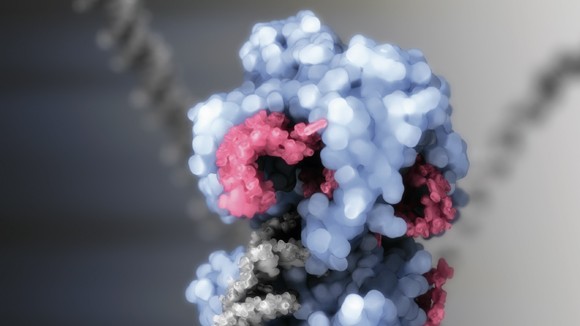Collections
Filters
-
Collection Type
-
-
Focus |
 Focus on neurotechnologies
Focus on neurotechnologies
Neurotechnologies have come very far in just a few years, and going forward we can expect them to provide new approaches to shed light on brain function and contribute novel therapeutic interventions for clinic use.
Image: Elizabeth Jameson -
Focus |
 Focus on wearable sensors
Focus on wearable sensors
Wearable technologies have the potential to transform our ability to monitor physiology not only in the clinical trial and outpatient settings, but also in the context of health and wellness.
Image: John Rogers, Northwestern University -
-
Focus |
 RNA-based therapies
RNA-based therapies
A joint focus with Nature Reviews Drug Discovery on RNA-based therapeutics presents a series of articles detailing recent progress in chemistries and delivery technologies that have propelled the clinical advancement of oligonucleotide therapies as well as highlighting commercial advances in RNA vaccines.
Image: Nature Publishing Group -
Focus |
 Single-cell technology
Single-cell technology
Single cell technologies are becoming increasingly important tools in biological analysis. Complementing average measurements on bulk populations of cells, single-cell measurements provide a finer-grained picture of complex biology and unmask heterogeneity that is present in tissues.
Image: Jezperklauzen -
Focus |
 Nature Biotechnology 20th Anniversary
Nature Biotechnology 20th Anniversary
Nature Biotechnology is 20! We have brought together a collection of Features celebrating two decades of the science and business of biotech, with an eye on the future.
Image: VLADGRIN / Sam Rios -
Focus |
Regenerative Medicine
Research in regenerative medicine is advancing toward the goal of repairing damaged tissue and organs. Nature Medicine and Nature Biotechnology present a collection of reviews, features and commentaries that explore our current mechanistic understanding of stem cells, and the emerging technologies that will bring regenerative medicine to the clinic.
-
Focus |
High-dimensional analysis of the immune system
New technologies enable analysis of the extraordinarily diverse and polymorphic components of the immune system–especially the human immune system–at a level of unprecedented detail. Reviews and a Commentary specially commissioned by Nature Biotechnology and Nature Immunology discuss these new methodologies, and how they may be applied to track immune status in health and disease, as well as to reveal new basic immunological insight. A Correspondence describing an initiative to design tools and resources to facilitate these high-dimensional analyses is also included.
-
Focus |
RNA sequencing quality control (SEQC)
This focus presents the results of the RNA Sequencing Quality Control (SEQC) project of the MicroArray Quality Control (MAQC) Consortium that sought to evaluate the comparability of RNA-seq data from many different laboratories and of assessing different sequencing platforms and data analysis approaches and their performance compared with DNA microarrays. Ultimately, these multi-platform, cross-site studies will enable RNA-seq to be applied more broadly in analyzing large cohorts for discovery research and clinical use.
-
Focus |
Translating the Microbiome
Researchers have generated more than 3.5 terabytes of human microbiome genomic information – more than 1,000 times that generated by the Human Genome Project. This Focus highlights progress in microbiome research and how these data might translate into a better understanding of human diseases and rational design of new therapies.
-
Focus |
DNA Sequencing Technology
Performance gains and falling costs have fueled diverse applications of high-throughput DNA sequencing. This focus issue of Nature Biotechnology summarizes the current status of these technologies as applied to life sciences and medical research. Produced with support from Ion Torrent - by Life Technologies.

 Focus on CRISPR tools and therapies
Focus on CRISPR tools and therapies
 Humans 2.0
Humans 2.0